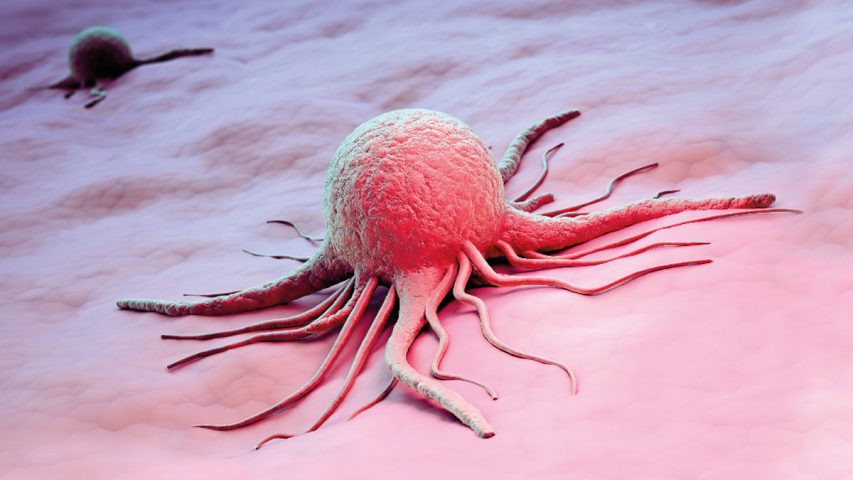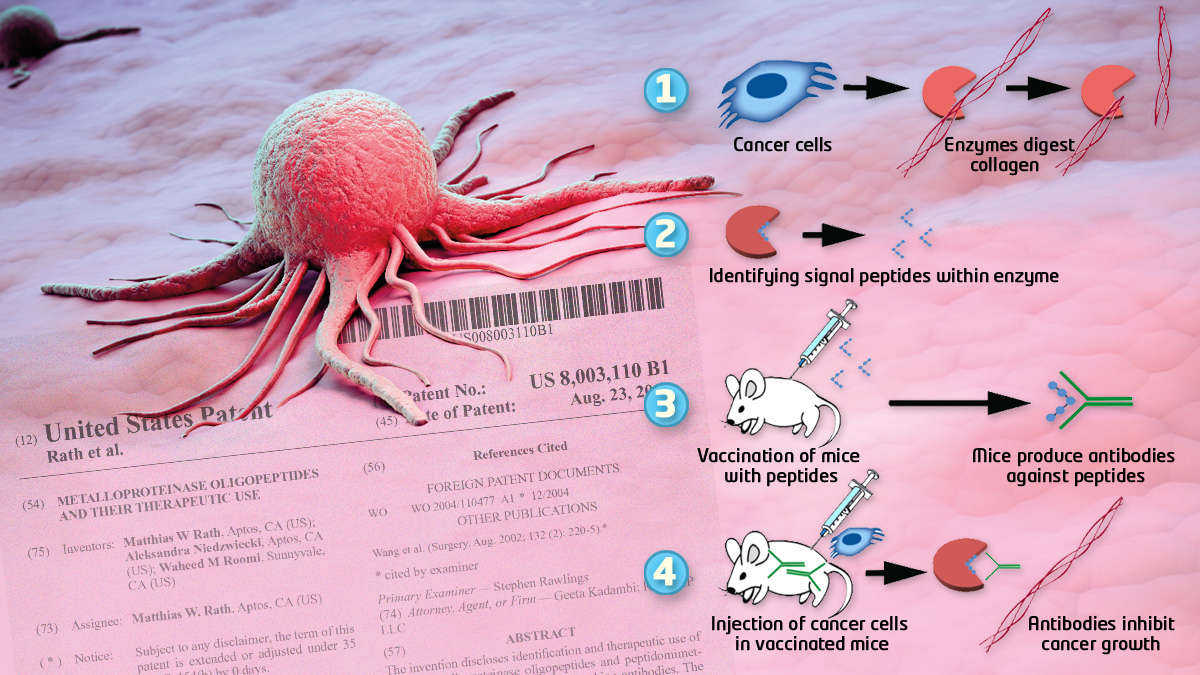- Have any questions? Contact us!
- info@dr-rath-foundation.org

Judge Upholds Monsanto Weed Killer Verdict But Slashes Damages Payable To Terminal Cancer Patient
October 27, 2018
France Launches New Investigation Into Babies Born With Unexplained Birth Defects
November 1, 2018PRESS RELEASE: Patented New Vaccine Candidates With The Potential To Block All Types Of Cancer Universally

PRESS RELEASE
A team of researchers from the Dr. Rath Research Institute in California has developed a cancer vaccine that is effective in reducing tumor growth. A peptide-based vaccine, it targets specific enzymes known as metalloproteinases (MMPs) that are necessary for any cancer to grow tumors, metastasize, and form blood vessels in tumors (angiogenesis). The Dr. Rath research team showed that test animals, vaccinated with peptides containing specific sequences from MMP-2 and MMP-9 and subsequently challenged with melanoma cancer cells, had an average reduction in tumor volume of about 76% compared to unvaccinated controls. Notably, some vaccinated animals did not develop any cancer at all.
The study was published this week in the online Journal of Cellular Medicine and Natural Health.1
Cancer remains the second largest epidemic, killing more than 7 million people each year worldwide. Decades of chemo- and radiotherapy and a myriad of recently introduced antibody therapies have done little to alter this. Now, this new therapeutic approach promises to change the situation.
Compared to monoclonal antibodies (Mabs) or biosimilar molecules recently developed to combat cancer, the anti MMP vaccine approach promises to be much more effective as well as affordable in the global fight against the disease. While Mabs/biosimilars are directed against one specific type of cancer, the anti-MMP vaccine targets all types of the disease at once. Moreover, while the Mabs/biosimilars generally require an injection once or twice each month, the anti-MMP vaccine would require one single vaccination with potential boosts only after several years. Additionally, while the annual costs of Mabs/biosimilar therapies average about US$ 100,000 and can reach US$ 700,000 per patient per year, the anti-MMP vaccination – if developed successfully – could be offered to the public by national or international health services at costs below US$ 10 per patient. Thus, this new approach promises to be the first therapy to be affordable for developing and threshold countries in the global fight against cancer. Most importantly, these vaccine candidates have the potential to prevent the disease in the first place, thereby opening the door to the elimination of cancer as a human epidemic.

Rationale of anti-cancer vaccine development based on MMP peptides
To protect this valuable technology from being monopolized by certain investment industries and, thereby, prevent it from being made unaffordable to the majority of patients and nations, the Dr. Rath Research Institute has obtained patent protection2 for it in many countries. The Institute is looking for public research institutes, government research organizations, and other non-profit institutions to co-develop this promising technology with the goal to successfully treat, prevent, and eventually eliminate cancer.
Contact: Dr. Aleksandra Niedzwiecki, CEO, Dr. Rath Research Institute
Email: contact@drrath.com
References:
- Journal of Cellular Medicine and Natural Health
- E.g. US Patents No. 8003110 and 8067009



